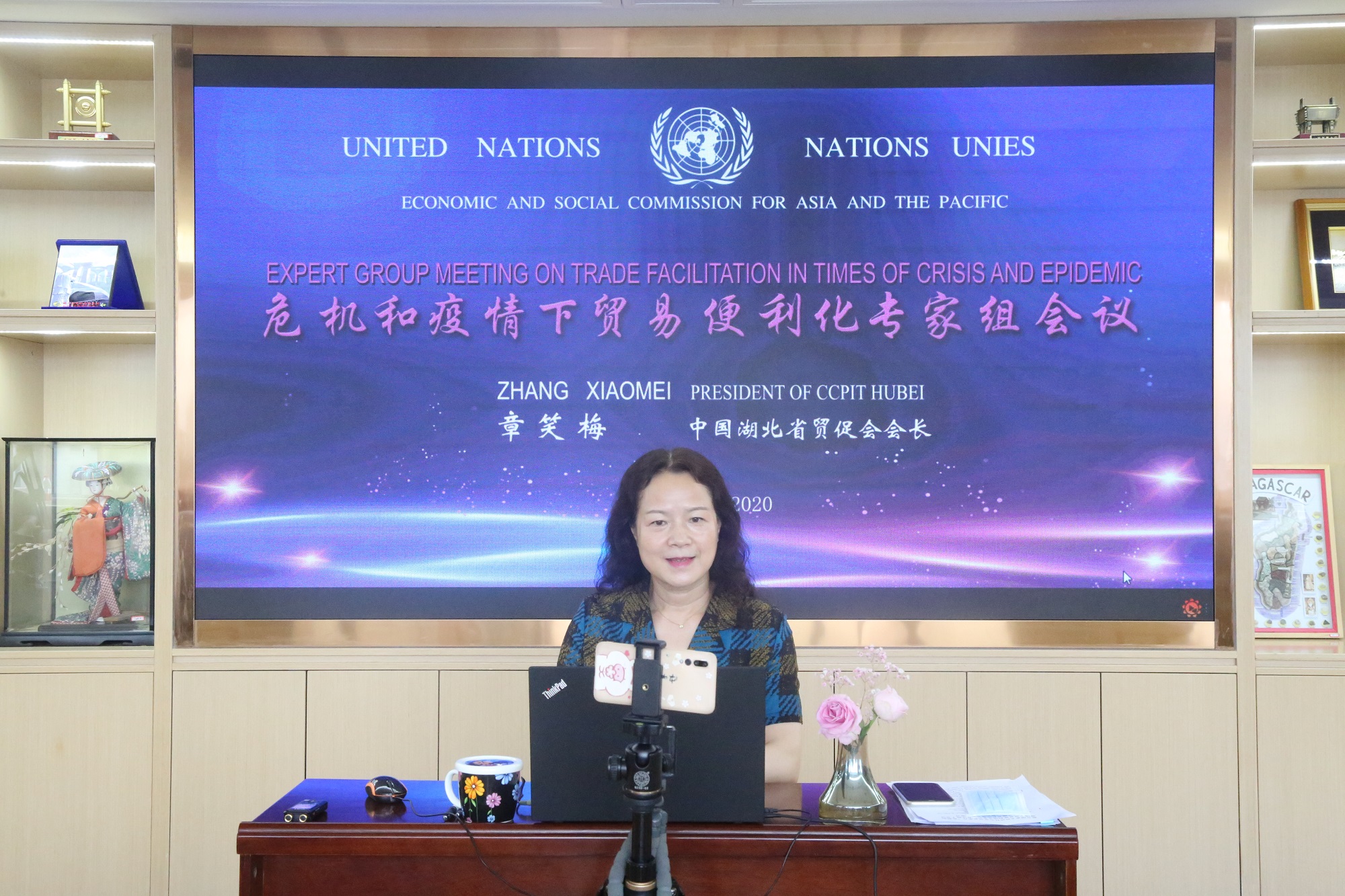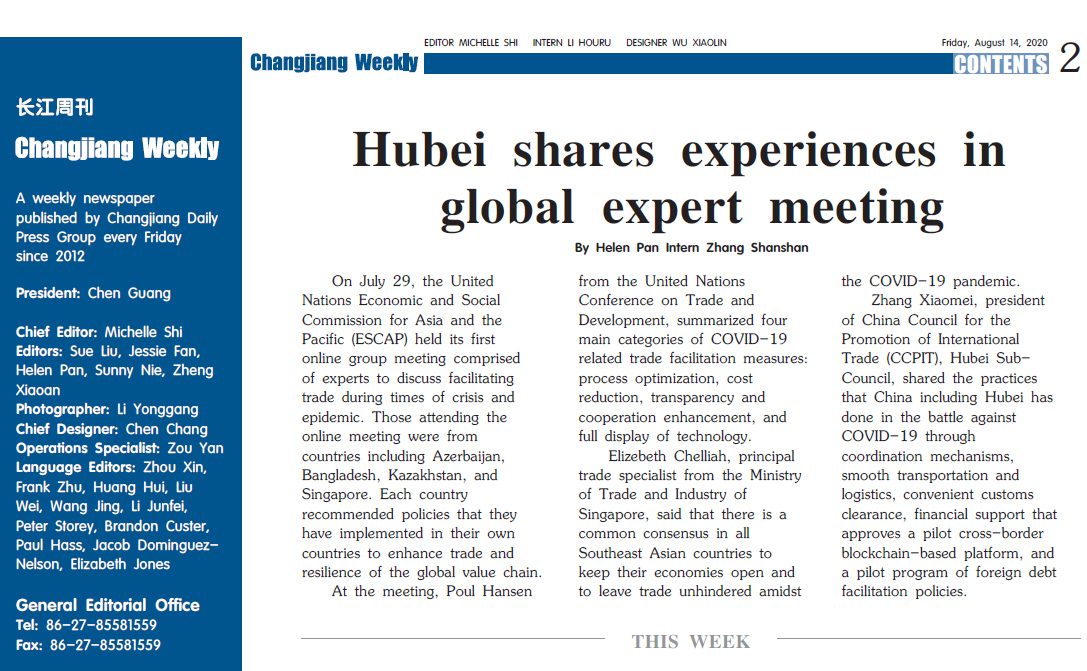On July 29, the United Nations Economic and Social Commission for Asia and the Pacific (ESCAP) held its first online group meeting comprised of experts to discuss facilitating trade during times of crisis and epidemic. Those attending the online meeting were from countries including Azerbaijan, Bangladesh, Kazakhstan, and Singapore. Each country recommended policies that they have implemented in their own countries to enhance trade and global value chain resilience.

▲ Online expert meeting on trade facilitation
As one of the invited experts, Zhang Xiaomei, president of China Council for the Promotion of International Trade (CCPIT), Hubei Sub-Council, shared the policies and measures China, specifically Hubei, has taken to facilitate trade.
At the meeting, Poul Hansen from the United Nations Conference on Trade and Development, summarized four main categories of COVID-19 related trade facilitation measures, including process optimization, cost reduction, transparency and cooperation enhancement, and full display of technology.
Elizebeth Chelliah, principal trade specialist of the Ministry of Trade and Industry of Singapore, said that there is a common consensus in all Southeast Asian countries to keep their economies open and to leave trade unhindered amidst the COVID- 19 pandemic. She briefed the group on the trade facilitation measures that Southeast Asian countries have taken due to COVID-19. These measures include a National Single Window that helped facilitate contactless trade transactions, and paperless trade facilitation in ASEAN member states.

▲ Zhang Xiaomei, president of CCPIT, Hubei Sub-Council
Zhang shared the common practices that China including Hubei has done in the battle against COVID-19 through coordination mechanisms, smooth transportation and logistics, convenient customs clearance, financial support that approves a pilot cross-border blockchain-based platform, and a pilot program of foreign debt facilitation quota.
She called on the attendees to strengthen international cooperation and coordination, learn from governance experiences, and make use of technological innovation to better facilitate trade.
Source: Changjiang Weekly


